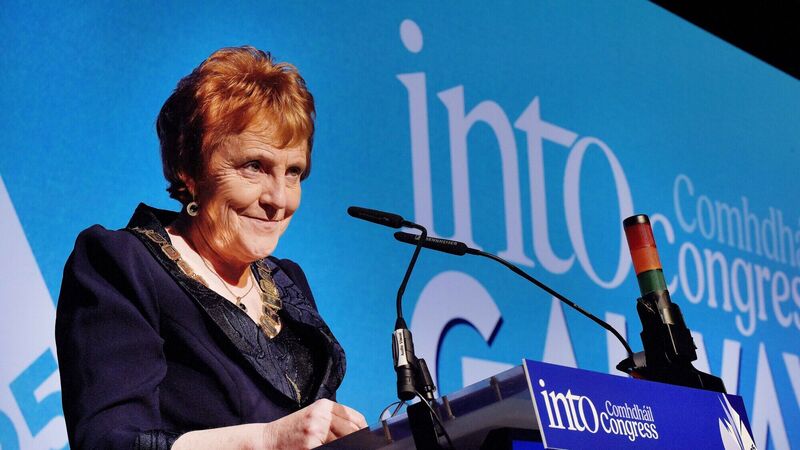Teachers to seek improvements to assault leave scheme

Carmel Browne, the president of the Irish National Teachers' Organisation, speaking to delegates at the union's annual congress in Galway on Monday. Picture: Moya Nolan
Primary school teachers are to campaign for better supports for those injured in traumatic physical incidents in classrooms or on school yards amid a sharp increase in injuries.
Almost 1,000 delegates attended the first day of the Irish National Teachers’ Organisation (INTO) annual congress in Galway on Monday, many of them primary school or special education teachers.










